SEARSPORT – At the end of last summer, a new family moved into the old, yellow cape on West Main Street. Why the family of five came here has been a bit of a mystery. They have no relatives in the area. No job that brought them here. No other connections. The explanation for why they came to Searsport emerged only after the older children began telling schoolmates about something that happened before they got here.
Something about a plane crash in Alaska.
Donald and Rosemarie Evans, with their children, Donnie, 12, and Mckenzie, 10, have chosen Searsport as a place to recover. The town offers access to the same kind of natural beauty they loved in Alaska but also the comfort of a community in a seaside village in New England.
“This is a quiet place, a healing place,” said Donald Evans, 33. “This forces us back into life again.”
Two years ago, the family survived a harrowing experience in Alaska after a plane crash left them stranded in the wilderness and fighting for their lives. They have never told their story before.
‘EVERYBODY’S GONE’
When the clouds broke, Donald Evans saw a mountainside fill the windshield of the single-engine plane. He remembers saying, “Please, God, protect my family.”
The Cessna crashed 37 miles west of McGrath, a remote town on the Kuskokwim River in western Alaska.
It was Aug. 13, 2011. Donald, his pregnant wife, Rosemarie, with their two children, Donnie and Mckenzie, had been flying from McGrath to Anvik, an Athabascan Indian village on the Yukon River, to begin their new jobs sharing a single elementary school teaching post in the village’s two-classroom school.
Evans twisted in the six-seater Cessna 207 and looked behind him. The plane, hardly larger than a minivan, had snapped in half on the mountainside. He couldn’t see his two children.
His wife was slumped in her seat, pinned underneath the pilot, Ernie Chase, who was dead.
Also dead was the woman sitting behind Evans, an admired schoolteacher named Julia Walker.
Donald Evans thought, “Everybody’s gone.”
Raised in upstate New York, the rookie teachers were still learning about their new home among the roadless hills and tiny riverside towns 350 miles northwest of Anchorage.
For Donald, still buckled in his seat, the clanging in his head was strangely familiar. The same feeling had chased mortar explosions and blasts from IEDs, or improvised explosive devices, during his 13 months in Iraq. This time he could smell airplane fuel. Some of his teeth were missing. The impact broke his back, legs, feet and jaw, doctors would later tell him.
Somewhere outside the crumpled Cessna, in the trees and rain, Donald heard his daughter cry. Mckenzie, 8, had been sitting behind Walker before the crash. The force tossed her 20 feet and she was soaking wet, her arm broken and her intestines severed, possibly by the lap-strap seat belt common in small propeller planes.
Evans crawled out of the plane to her.
Together, Donald and Mckenzie pulled themselves back to the plane, where Rosemarie was regaining consciousness. She was struggling to breathe, the bodies of the pilot and teacher pressing against her.
Rosemarie immediately understood she had been in a plane crash. She thought of her unborn baby and wondered why the child would be taken away from her so fast.
Her back, feet, ankles and right arm were broken. The only part of her body she could move was her left arm, which she used to reach out the window, feeling behind her.
Donnie, 10, was somewhere back there, alive.
When the fuselage buckled in the middle, Donnie’s seat pitched forward, the couple later realized.
The boy had rolled partially underneath the plane before the floorboards came to rest against his legs and waist, trapping him. His torso dangled out of sight.
Donald and Rosemarie could hear him screaming.
“There was so much force pressing against him, there was no way I was going to yank him up from the plane,” Donald said.
Unaware that Rosemarie was conscious, Donald grabbed an antenna at the rear of the plane and dragged himself to the roof. He crawled to Donnie, letting himself fall from the top of the Cessna to land beside his son.
Donald noticed a large branch from a nearby tree. A willow tree. It must have snapped in the crash, he thought. He used the tree as a brace to give his son support and “even him out.”
Donald had packed a borrowed pair of shears in the plane. Now he used the tool to cut away the floorboards that were crushing the boy.
“Just give Daddy a couple minutes,” he told Donnie. “I’m just going to take a break and then I’m going to finish cutting you out of here.”
In the middle row, Rosemarie slipped in and out of consciousness, coughing up dark blood.
“I can’t breathe!” she yelled.
Donald’s adrenaline had vanished. He forced himself to crawl back to the front and shifted the pilot’s body off her. Today, nearly two years later, she still doesn’t know where he found the strength, Rosemarie said.
“God gave my husband the ability to do what he did, because it was beyond him.”
As the sun went down, she reached back and found her son’s hand. Rosemarie began to feel unfamiliar pangs in her stomach. A new kind of pain and a rush of panic.
STARTING A NEW LIFE
Donald and Rosemarie Evans grew up in New York state’s Hudson Valley. They were both 15 years old when they first met at a Poughkeepsie movie theater and started dating.
At 17, Donald joined the Marines for four years. He later enlisted in the Army and was sent to Iraq.
After leaving the military in 2007, Donald was eager to get away from civilization and move to Alaska. The couple settled in Wasilla, a suburb of Anchorage, and studied to become teachers.
They were eager to live in “the bush,” the name Alaskans use for the vast part of the state separated from the road system. They thought they found their dream when they were hired to teach in Anvik, a village of fewer than 100 people where snowmobiles outnumber pickup trucks and a head of lettuce costs $5.50.
The family traveled to the village in June. It was their first flight in a small plane. They soon met Julia Walker, the only other teacher in the village. The kids became fast friends as Donald spent the summer erecting the school’s new playground set. At night they opened the gymnasium for students to play basketball.
The couple told a group of boys they’d help them make go-carts in shop class.
“We were really impressed that they wanted to come and be part of the community early like that,” said Tami Jerue, Walker’s sister-in-law and social services director for the Anvik tribe. A week before classes were scheduled to begin, the teachers flew to the district headquarters of McGrath for a series of meetings to prepare for the upcoming school year.
Rosemarie bought a pregnancy test at the McGrath general store, confirming a hunch. The couple had assumed they couldn’t have any more children because of an autoimmune disease that Donald suffered, and the prospect of another baby left the couple excited and nervous.
Suddenly the decision to share a single teaching job, rather than moving to a district where they could each earn a full salary, made more sense. Don could teach during Rosemarie’s maternity leave. Maybe it had all happened for a reason, she told him.
As her parents sat in meetings, Mckenzie sewed her first quilt.
At the end of the week, the family packed the new blankets, groceries and school supplies into the cramped Cessna. For two days they waited for a break in the weather.
Chase said they had an opening shortly after 7 p.m. Saturday and the family buckled in. Just before takeoff, Donald noticed an emergency locator beacon clipped to the pilot’s sun visor.
He recognized the brand. He and Donnie took a similar beacon on rafting trips. It sends a distress signal with the user’s whereabouts in an emergency.
“That’s good to know,” Donald thought.
WEATHER TURNS BAD
As the plane prepared to leave, Donald and Rosemarie felt the split-second whirl of second thoughts and silent unease familiar to all village fliers. Donald wondered, would this be the flight where something went wrong?
“I can remember sitting there and just looking outside and just having that weird feeling,” he said.
Pregnant Rosemarie just felt sick, her stomach queasy as they lifted off. Donald watched the Kuskokwim disappear thousands of feet below, and looked for moose or bear. The kids sat with books.
There was hardly any turbulence, Rosemarie said. She threw up anyway. Walker, belted beside her, helped her clean up and retreated into her iPod.
The National Weather Service recorded a temperature of 53 degrees and light wind, haze and fog.
Within minutes, the plane was enveloped in clouds.
“This is pretty bad,” Donald remembered the pilot saying.
The father was disappointed, thinking of the family’s cocker spaniel and Labrador waiting in Anvik. Donald swiveled in his seat. “Sorry, babe. We’re probably going to turn around.”
Rosemarie, who had been growing anxious about the weather, leaned back. “No big deal,” she said.
Chase dipped the plane close to the ground, looking for clearer sky. The Cessna climbed, then dipped again. The pilot must have spotted something, Donald said.
The plane banked hard to the right. Donald Evans shouted to the pilot seated beside him: “Pull up!”
WOLVES NEARBY
The four family members had all regained consciousness about 20 minutes after the crash, Rosemarie said.
Hypothermia was Donald’s first fear. He removed Mckenzie’s soaked clothing and wrapped her in her newly finished quilt. He added another layer using cardboard from boxes and black plastic garbage bags.
Less than an hour had passed since the accident. It was still light out. Rosemarie could hear birds chirping, but it was growing colder. After he pulled the body of the pilot off Rosemarie, Donald remembered the beacon.
He crawled to the front of the plane and tried to make radio contact to call for help.
The cockpit lights flickered.
No one answered.
Again and again he pressed the pilot’s emergency beacon, a GPS messenger device popular with hikers and hunters.
Chase’s family in Wasilla received the satellite message at 8:30 p.m. and called the pilot’s parent airline, Inland Aviation Services, according to a preliminary National Transportation Safety Board report on the crash.
The airline launched planes to search Chase’s flight path, but bad weather cut the effort short. Other small planes flying in the area, meanwhile, alerted the Alaska Air National Guard that they’d picked up a distress signal from an emergency locator transmitter somewhere on the mangled plane.
The family knew they were only about 20 minutes from McGrath. Surely they would hear the sound of a rescue helicopter soon. They heard airplanes, Donald said, but never saw any lights.
Sometime before nightfall, Donald heard wolves howling in the fog.
“Everybody started screaming,” he said. “I was just begging everybody to stop screaming. Just, ‘please.”‘
The sun went down about 10:45 p.m., according to National Weather Service records. The wolves never appeared. Neither did the helicopter.
STAYING AWAKE
Donald angled a broken school district laptop, trying to reflect a flash of light through the clouds to let someone know survivors were huddled in the plane.
He held Mckenzie while Rosemarie, still trapped in her seat, held Donnie’s hand. Every few seconds, Donald yelled to the family and tried to get them to yell back, determined to keep everyone awake.
Falling asleep might kill them, he feared, something he had learned while in Iraq. Rosemarie, still unable to move, drifted in and out of consciousness.
They sang the words to a children’s poem that Donald and Rosemarie read to Donnie when he was a baby:
“These little hands are held in prayer. To thank you God for being there. These little hearts speak to you.”
“This went on for a good part of at least 12 hours,” Donald said.
Rosemarie worried she might be miscarrying. She prayed in silence, for Ernie Chase and Julia Walker and her family. “For the lives that God took and the lives that were still on the plane and the life of my unborn child,” she said.
The feeling of helplessness was torment, Rosemarie said. “As a mother, your children need you, but literally there’s nothing you can do.”
Donald found a bag of clementine oranges the family had purchased in McGrath — fresh fruit is an expensive luxury in the villages — and tossed one to each family member.
“He said, ‘Here, guys, this will bring a little sunshine into our lives right now,”‘ Rosemarie said.
It was a last meal. After they ate, Donald had planned on telling the family that they could finally go to sleep.
“We really at that point thought, ‘we’re going to die,”‘ Rosemarie said.
Less than five minutes later, they heard the helicopter.
BABY SURVIVES
The Evans family had been trapped in the plane for more than 15 hours when Guardsmen hoisted them to the Pavehawk.
Both Donald and Rosemarie had suffered broken backs. Donald broke both legs, and one foot had been twisted completely around. The couple underwent a series of surgeries and were wheelchair-bound for months.
Doctors operated, reattached Mckenzie’s intestines and removed her appendix. They cut along Donnie’s skull from ear to ear and pushed back the middle part of his skull.
Donald, who did so much to save his family, was hurt the most. The neurological damage has impaired his memory and his ability to concentrate and control his bowels and bladder. He now walks with a cane and still needs a wheelchair for longer distances.
Rosemarie now has a plate in her arm and rods and screws lodged in her back. Doctors tried to give her drugs that would not pass through the umbilical cord to her baby. She was told many times the child might not make it, she said.
She gave birth exactly seven months after the crash. One of the nurses who helped in the emergency room when the family first arrived from the crash site was on hand to deliver the baby, she said.
The couple named the girl Willow, for the tree branch that Donald used to save his son. They named her Julia, for the teacher who lost her life in the crash. And they named her Grace, Rosemarie said, “because it’s by the grace of God that we’re all here.”
Willow Julia Grace Evans celebrated her first birthday in March.
AN UNCERTAIN FUTURE
The cause of the crash has not been determined, although mechanical failure has been ruled out. The Evans family has been living on money they received from the airplane company’s insurance. Some of the money was used to buy their 193-year-old house, a fixer-upper they found on a real estate website while still living in Alaska.
Donald, whose recovery has been the slowest, sees doctors two or three times a week, traveling to the Togus VA Medical Center in Augusta for treatment and to Mercy Hospital in Portland for surgery. Doctors are trying to help him cope with the neurological damage caused by his spinal cord injury. His foot, which was mangled in the crash, has been straightened out but is still far from functional. Doctors operated on it in Portland earlier this month.
Rosemarie suffers from arthritis in both feet, a result of nerve damage to her spine, and she experiences constant back pain. Still she’s trying to find some “middle ground” where she can experience a fulfilling life despite the pain.
Donnie and Mckenzie have proven to be the most resilient. They’ve recovered both physically and emotionally. Both played basketball this winter in the town’s recreation league, and they have made a lot of friends, Rosemarie said.
The children grew up moving around a lot, and they were always eager to move along to the next town or state, Rosemarie said.
But now they don’t want to leave Searsport. “They want to build a life here,” she said.
Donald and Rosemarie say they feel safe in Maine, and that people here are friendly and trusting. Back in Alaska, a more transient state with a high rate of violent crime, people were more guarded, they said.
As often happens in families, the children are leading the parents into the community, through relationships developed at school and in sports. Over the past few weekends, Donnie has been helping classmates rehabilitate the courtyard at the middle school. While watching her son work, Rosemarie met a mother who heads the school’s parent/teacher group, and was invited to attend the group’s next meeting.
It’s a small thing, but it’s a big step forward for someone who has spent nearly all of her time for the past two years either housebound or in hospital rooms.
Rosemarie and Donald hope they’ll be healthy enough by next fall to work as substitute teachers in local schools, although they worry that nobody will hire them because of their health problems.
Yet despite their obstacles, they feel fortunate to be alive.
“You really do feel you have a second chance,” Donald said. “We need to do something. We need to have a purpose. We just don’t know what that is.”
Kyle Hopkins reported from Anchorage, Alaska. Staff Writer Tom Bell reported from Searsport.
Tom Bell can be contacted at 791-6369 or at:
tbell@pressherald.com
Twitter: TomBellPortland
Send questions/comments to the editors.

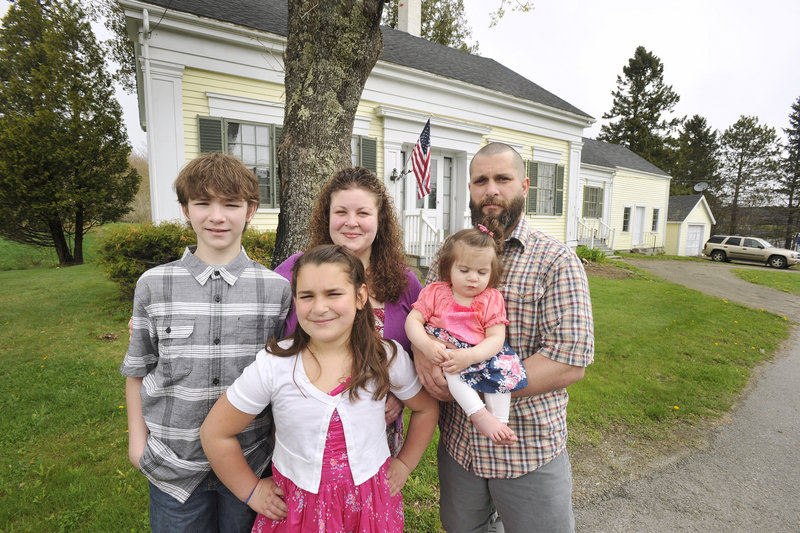
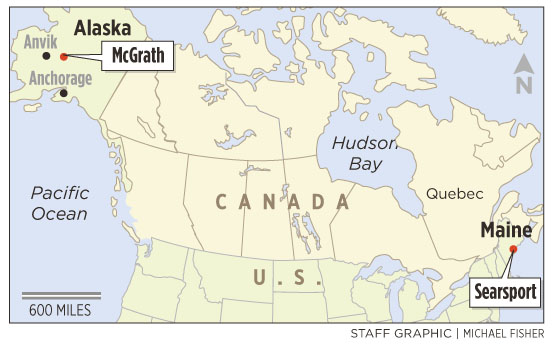
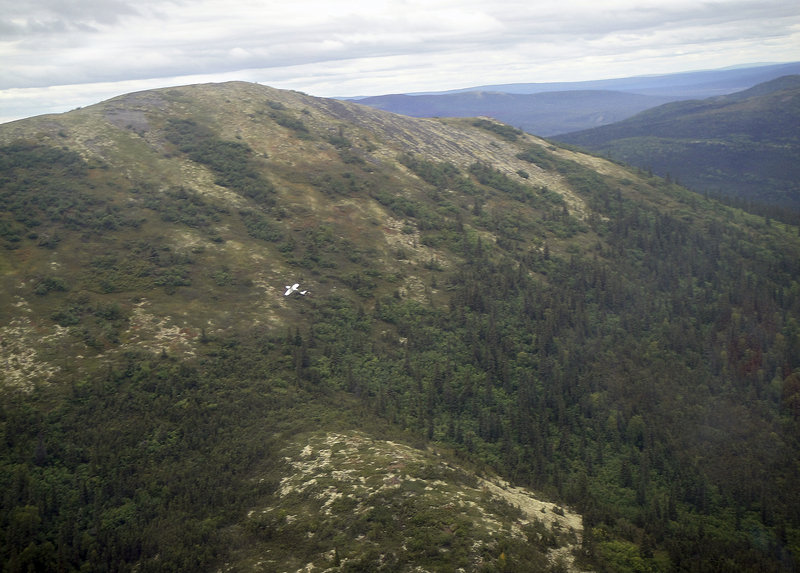
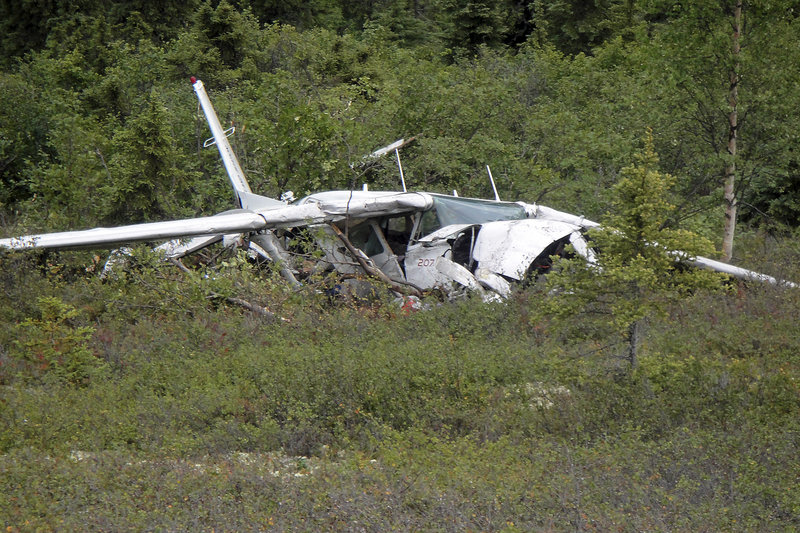
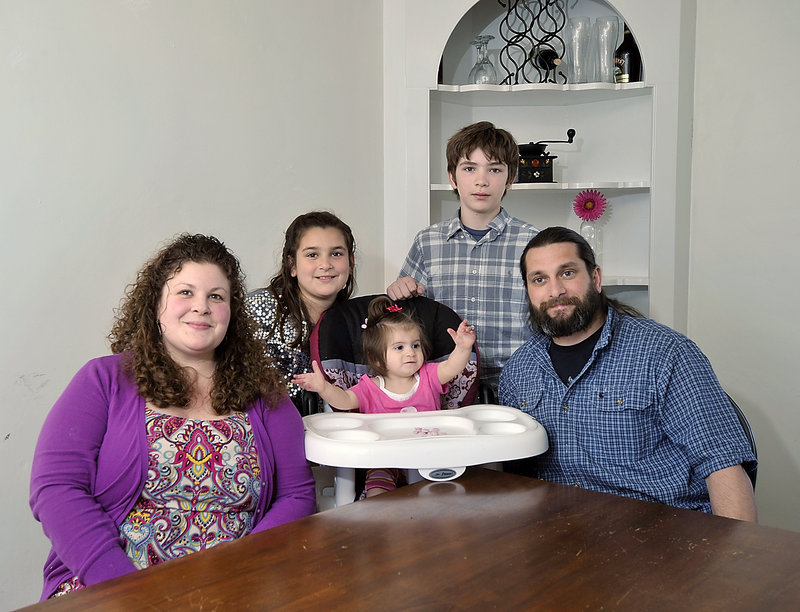
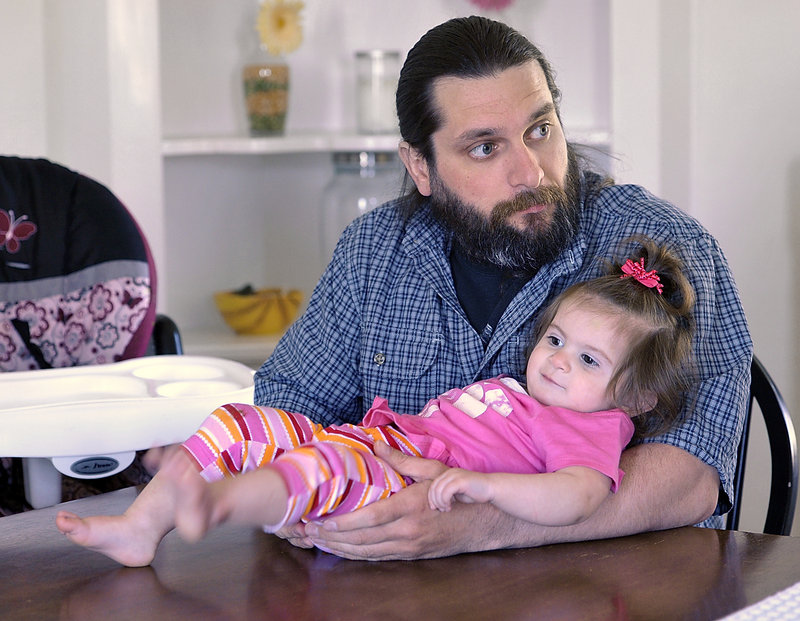

Success. Please wait for the page to reload. If the page does not reload within 5 seconds, please refresh the page.
Enter your email and password to access comments.
Hi, to comment on stories you must . This profile is in addition to your subscription and website login.
Already have a commenting profile? .
Invalid username/password.
Please check your email to confirm and complete your registration.
Only subscribers are eligible to post comments. Please subscribe or login first for digital access. Here’s why.
Use the form below to reset your password. When you've submitted your account email, we will send an email with a reset code.